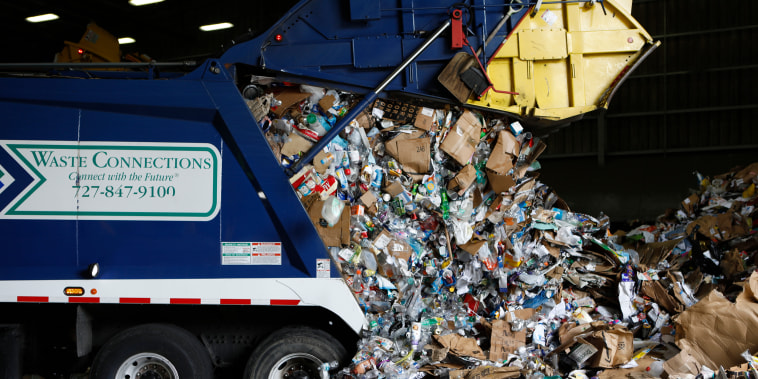Like many booming metros, Tampa is finding that more people equals more garbage. In response, officials there are leaning into an approach popular in Florida: Set it on fire.
“All areas that are experiencing growth are going to find issues of capacity” for managing waste, said Jack Mariano, the commissioner of Pasco County, just north of Tampa’s Hillsborough County. “Everybody’s facing: Where are we gonna put the trash?”
In September, Pasco authorities approved a $540 million plan to add a fourth boiler to the county’s waste-to-energy facility, or WTE, boosting capacity at the incinerator complex by around 50% while feeding more power — from a turbine spun by steam heated through garbage burning — to the electric grid.
Authorities plan to tap Inflation Reduction Act funds to offset about $60 million of the project, targeted for completion in summer 2026, Mariano said. The plant is one of three in the Tampa area that process solid waste, but it currently can handle less than two-thirds as much as a nearby Hillsborough WTE and a third the volume of Pinellas County’s to the west, a facility official said.
The Pasco County Resource Recovery Facility is expected to burn 440,000 tons of waste this year, nearly 100,000 more than usual.Octavio Jones for NBC News
WTEs have been around for decades, but their technology is getting cleaner and safer, according to the U.S. Environmental Protection Agency and ongoing research. Regulators have required substantial upgrades over the years, including to the Pasco plant, built in 1989. Many of the facilities are eligible for tax credits expanded by the Inflation Reduction Act, an Energy Department spokesperson said.
Justin Roessler, Pasco County’s solid waste and resource recovery director, said the incinerator there already includes “rigorous air pollution controls” such as activated-carbon injection to filter harmful gases. The site’s emissions are monitored continuously for anomalies, which are reported to regulators if detected.
The expansion plan includes outfitting the boilers with new technology to reduce nitrogen oxide emissions, a local official said. When the project is finished, Pasco will boast “the first waste-to-energy facility in the country to have a CO2 limit in its permit,” Roessler said. “We are very proud of that.”
Still, waste-to-energy plants handle highly hazardous materials, and even the cleanest operations emit federally allowable levels of noxious chemicals formed during combustion. Lately, residents’ concerns over the potential health risks have drawn more scrutiny.
Ana Vale relocated her family from Atlanta last year to a home in Doral, Florida, about 20 doors down from Miami-Dade County’s incinerator. About two weeks after moving in, her now-14-year-old daughter began complaining about her skin itching and burning. Soon afterward, a dermatologist diagnosed her with eczema.
Then, on Feb. 12, the plant caught fire and burned down, raising Vale’s concerns even further.





























